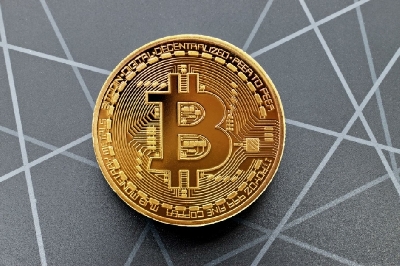This post was published by a guest. The views expressed are those of the author and do not necessarily reflect the views of Scified.com.
On account of its spectacular rise in the course of time, the cryptocurrency market has caught the interest of legitimate investors and threat actors alike. Bitcoin has a market capitalization of $ 1,279.36 billion, so it comes as no surprise that it represents an attractive target for cybercriminals. The Bitcoin price is making rapid advances, too. Blockchain technology, the driving force behind Bitcoin and other groundbreaking applications, is impervious to compromise, as each block is signed with a hash, the result of a mathematical algorithm. Nonetheless, there have been a number of high-profile cases, such as the hack of Mt. Gox, when thousands of Bitcoins were stolen. At the time, the cryptocurrency exchange managed roughly 70% of all transactions.
Historically, malicious actors have been resourceful, stubborn, and successful in getting into peoples’ wallets and they’re always on the lookout for security loopholes. It’s crucial to take precautions if you don’t want to fall victim to scammers. Once your Bitcoin has been stolen, it’s impossible to recover because blockchain records can’t be changed. Cybercriminals target anyone, regardless of their age, gender, or level of education.
Have A Reliable Internet Connection
If you’re actively trading Bitcoin, you need a reliable internet connection to keep your activity secure and anonymous. It keeps unauthorized users and hackers at bay, so ramp up your security level to top-secret. How? Besides using complex passwords on routers and repeaters, prevent other computers from connecting to yours. Configure your router to exclude other IP addresses so they’re automatically rejected from linking to it. If you need to access the internet while away from home, it’s not a good idea to use a public Wi-Fi network because nearby individuals can intercept your traffic.
Bitcoin transactions are pseudo-anonymous, so cybercriminals can’t directly steal your funds, but you’ll become annoyed with the unwanted attention. Threat actors will start targeting you, mainly if you conduct high-value transactions or browse crypto-related sites. A VPN is one of the best ways to secure your internet connection, as it hides your IP address, therefore allowing you to keep transactions private and secure. There’s always some room for hackers to potentially exploit despite robust security measures and encryption protocols used by exchange platforms. You can manage your digital assets at any time from any place, bypassing firewalls on exchange servers.
Before Downloading a Bitcoin Wallet, DYOR
After you’ve acquired Bitcoin, the next step is to make sure it’s stored in a safe place. A wallet provides complete control over your money, allowing you to conduct transactions on the blockchain. It can be accessed using your private key, which acts as a password to protect the cryptocurrency holder and unlock the value that holds your Bitcoin. Attention must be paid to the fact that not all digital wallet providers are created equally. Before downloading an app, do your research – in other words, look into the wallet and its creators, even if it’s listed on Google Play or the App Store. After setting up your wallet, transfer your Bitcoin and store your coins offline for an additional layer of security to your digital assets.
Don’t Make Yourself a Target
As important as it is to play defense with the right tools when protecting your Bitcoin account, it’s just as important to remain vigilant. It takes a cybercriminal just a couple of seconds to select their victim, so do your best to avoid being a target. It’s not recommended to show off your success, even if you make a lot of money consistently, because it can make you a target for cybercriminals. Flaunting your wealth for the world to see on social media is dangerous because the more information you upload, the greater the risk of being scammed. Don’t post personal information online, and adjust your privacy settings so strangers can’t message you.
Big businesses must maintain a presence online, so they resort to social media messaging and respond to customers. In case you didn’t already know, hackers often pose as IT/tech support to gain access to your computer and compromise your entire network. Equally, they might pressure you for account credentials. Don’t ever open anything that looks suspicious, think twice before fixing an urgent technical issue, and ensure the messages you receive aren’t poorly written. Cryptocurrency exchanges like Binance will never ask you to create test accounts on other platforms or request banking information on social media.
Ignore Requests to Give Your Private Key
Cybercriminals use suspicious links or emails to lure victims into handing over their private keys or other sensitive information. The private key is needed to sign and validate transactions, acting as proof of ownership on the Bitcoin blockchain. Simply put, it plays an indispensable role in the management of digital currencies. Regrettably, private keys can be compromised if wallets are always connected to the internet. As its name clearly suggests, the private key must be kept confidential, so use discretion in disclosing information and guard against inappropriate access. Cryptocurrency is an innovative technology, but you can resort to more primitive backups, such as writing the private key down on a piece of paper.
Update Your Software to The Latest Versions
Finally, yet importantly, software updates are critical for maintaining the security of your devices and applications. Update your operating systems on a regular basis for security purposes. Not only will your information be safe, but also your programs will remain compatible with one another (don’t ignore related software that interacts with your cryptocurrency). Developers continue to improve their products to keep you safe from viruses and malware, so there’s no better time than now to improve your computing experience. The simplest way to stay on top is to turn on automatic updates (if possible, of course) so you don’t have to check for or install available updates.
The Takeaway
If you have a Bitcoin app, wallet, or account, malicious actors will do anything within their means to steal your cryptocurrencies. There’s a cat-and-mouse game between innovators and hackers in the digital financial landscape, so take preventative measures to minimize risks. If you stay vigilant and educate yourself about ongoing threats, you don’t have to worry about losing your funds.

The Healing Power of Massage: Your Path to Better Health
Introduction to the Therapeutic Benefits of Massage Massage therapy has evolved from a simple method of relaxation into a comprehensive practice with...

Address Collection: Modern Methods for Accurate Data Capture
Accurate address collection has become a mission-critical necessity for organizations that rely on precise customer information to streamline logistic...

uWin Launches Exclusive VIP Prize Draw to Win Behind-the-scenes Tour of Silo — in Support of PORA
uWin has announced an extraordinary new prize draw offering television fans the chance to win an exclusive VIP set tour of Silo, one of Apple TV+&rsqu...

KYC in Gaming – What It Is and Why It Matters
The world of online gaming has come a long way over the past decade. But as the industry continues to grow, so do the risks that come with it. Today, ...

Toshi.bet Advertising Agreement: A Warning to Publishers and Investors
A cautionary warning for publishers, website owners, and investors who are approached by Toshi.bet for advertising - steer clear!


